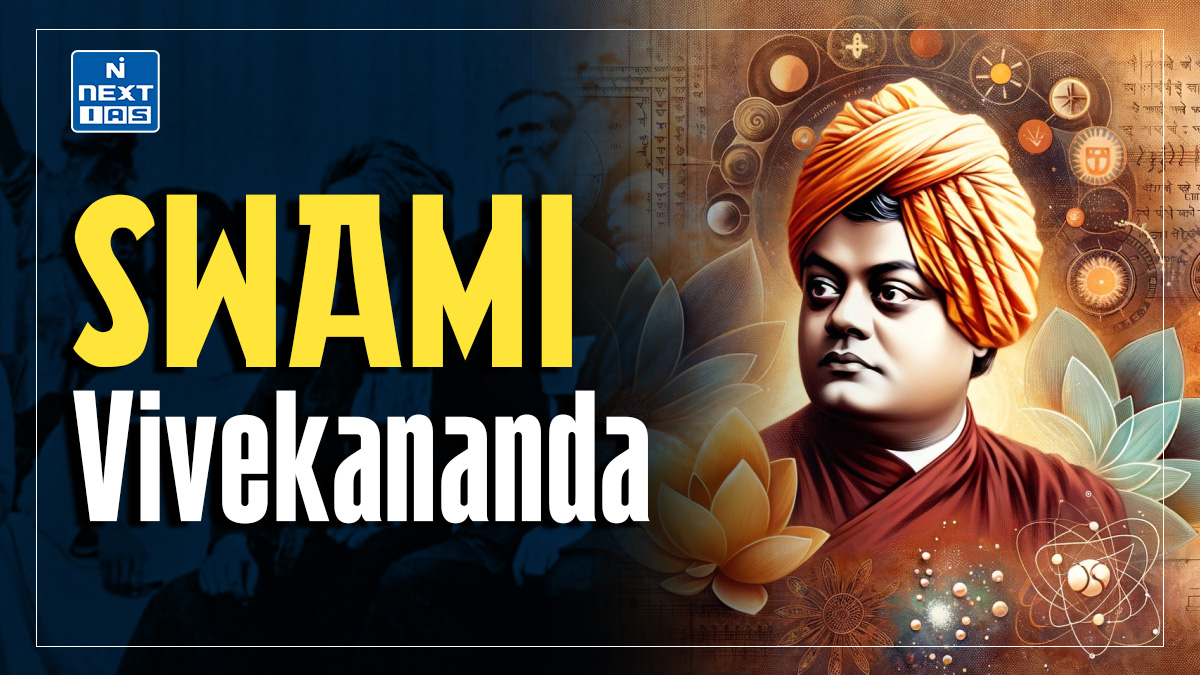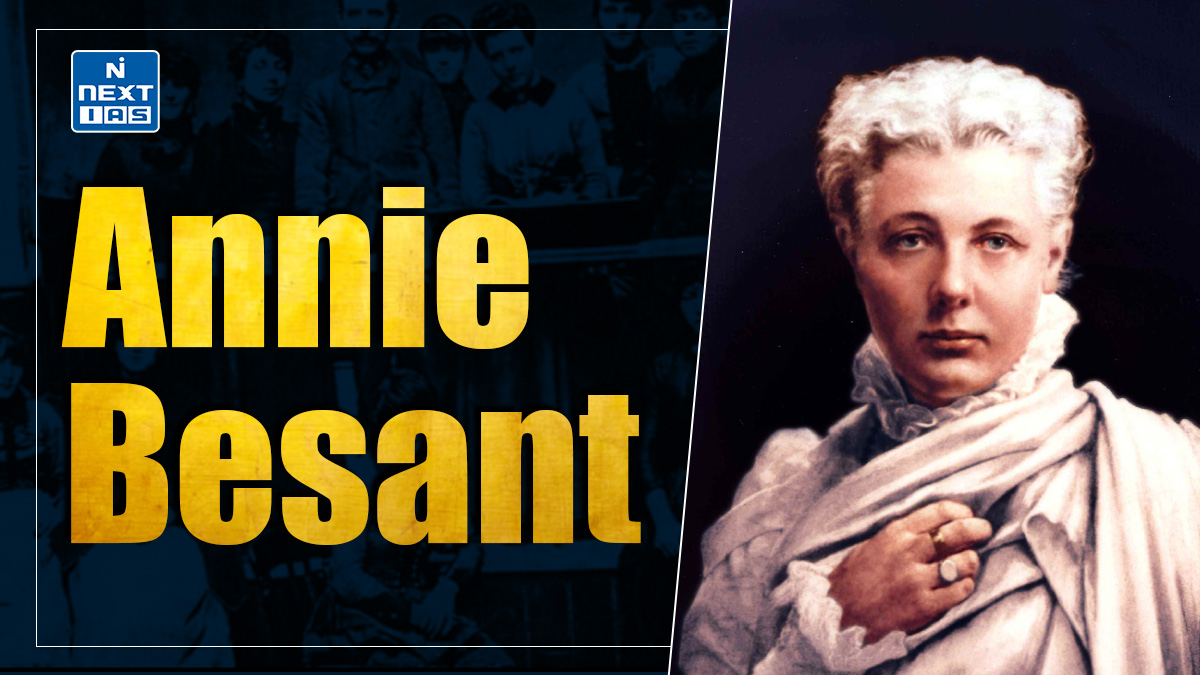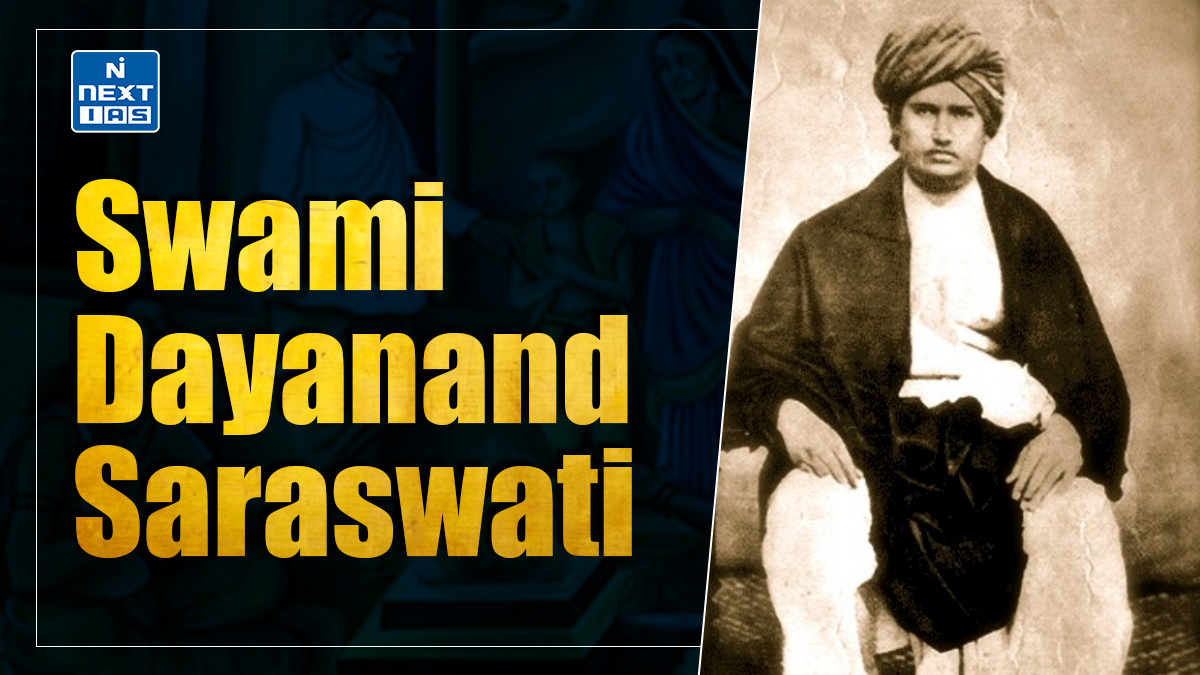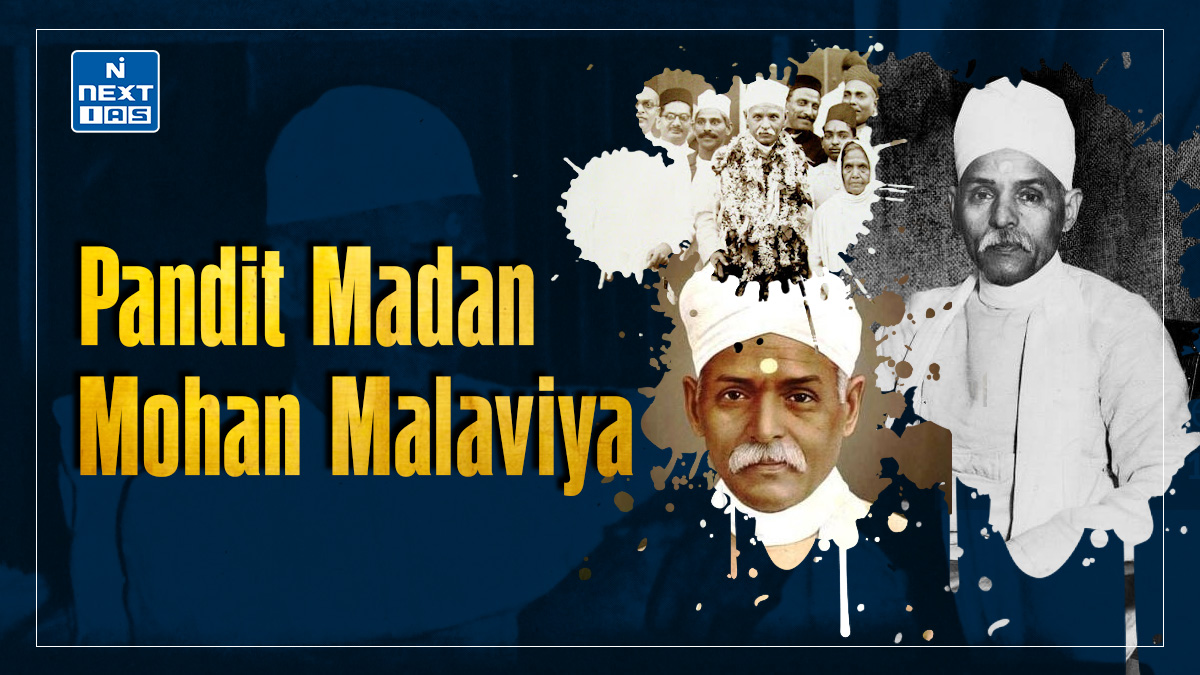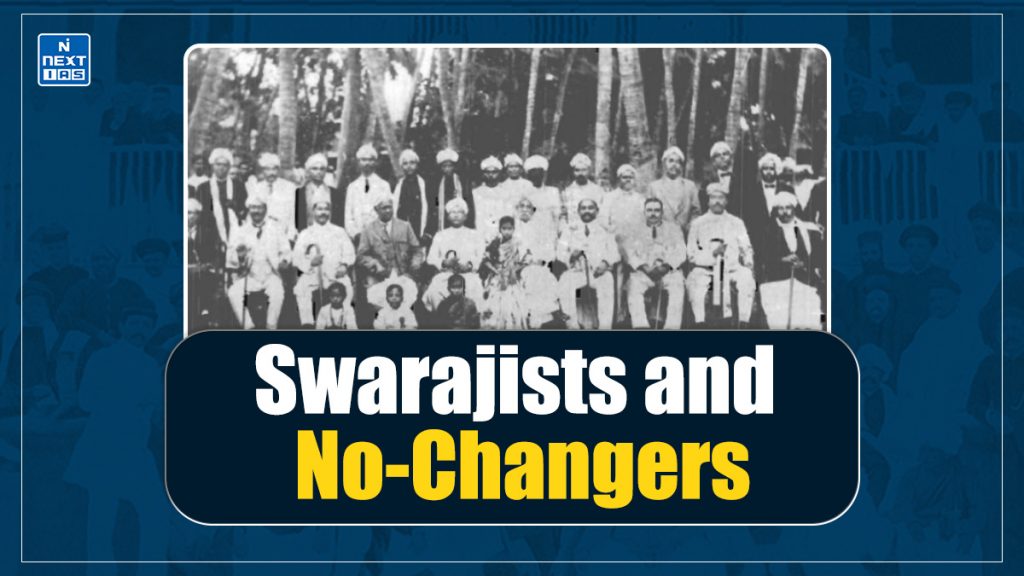
The Swarajists and No-Changers represented two factions within the Indian National Congress in the 1920s, debating whether to contest British council elections or focus on Gandhian constructive work. This division highlighted differing strategies within the independence movement, ultimately strengthening Congress by balancing legislative engagement with grassroots mobilization. This article aims to study in detail the contrasting approaches of the Swarajists and No-Changers, their impact on India’s freedom struggle, and the eventual reconciliation that paved the way for future mass movements.
About Swarajists and No-Changers
- The Swarajist-No-Changer debate within the Indian National Congress marked a pivotal moment in India’s independence movement, following the lull after the Non-Cooperation Movement in the early 1920s.
- This division reflected the contrasting political ideologies on how to sustain momentum in the fight for independence, given the British rule’s strong grip on power and the limited scope of legislative reforms introduced by the British.
Debate between Swarajists and No-Changers
- After the suspension of the Non-Cooperation Movement, the Indian National Congress faced an uncertain future.
- Nationalist sentiments were high, but leaders disagreed on the next steps.
- Some leaders, like C.R. Das and Motilal Nehru, sought to contest elections to legislative councils, aiming to undermine British authority by obstructing the councils from within.
- Known as the Swarajists, or the “pro-changers,” they believed council entry was essential to keep the independence movement alive.
- Conversely, prominent Congress leaders like Vallabhbhai Patel, C. Rajagopalachari, and Rajendra Prasad argued for continuing Gandhian constructive programs outside legislative institutions, emphasizing grass-roots engagement and preparation for the next mass movement. This faction became known as the No-Changers.
Formation of Swaraj Party
- The heated debate reached a peak at the Gaya Congress Session of 1922, where the Swarajists’ proposal to end the boycott of legislative councils was defeated.
- In response, C.R. Das and Motilal Nehru founded the Congress-Khilafat Swaraj Party in January 1923, while remaining within the Congress.
- Their aim was to contest the elections while adhering to the overarching Congress goal of Swaraj.
- The Swarajists hoped that, by gaining seats within councils, they could expose the limitations of British reforms and rally further public support for complete independence.
Differences between Swarajists vs. No-Changers
| Swarajists | No-Changers |
| Believed legislative entry could sustain the momentum of the independence movement and educate the masses. | Argued council participation would undermine the philosophy of non-cooperation and dilute commitment to independence. |
| Saw council participation as a temporary strategy to obstruct British policies from within. | Advocated for Gandhian constructive work like promoting khadi, Hindu-Muslim unity, and fighting untouchability at the grassroots level. |
| Wanted to prevent pro-British elements from gaining council seats, fearing they would legitimize British policies. | Feared council entry might distract from ground-level work and lead to moral corruption among leaders. |
Achievements of Swarajists
Despite the limited power of the councils, the Swarajists managed several achievements that significantly influenced public opinion and exposed the shortcomings of British “reforms.” In the 1923 elections, the Swaraj Party won 42 out of 101 seats in the Central Legislative Assembly, forming a common front with Independents and other like-minded factions. They achieved notable successes:
- Obstruction and Awareness: By frequently outvoting the government on major issues and forcing budgetary grants to be certified by the Viceroy, they highlighted the council’s powerlessness and the farcical nature of British reforms.
- Promotion of Self-Government: They passed resolutions demanding constitutional reforms and self-governance.
- Support for Civil Liberties and Indigenous Industry: The Swarajists raised issues concerning civil liberties, political prisoners, and the need to repeal oppressive laws. Their speeches and debates were widely covered in the press, igniting public awareness on these issues.
Challenges and Decline of Swarajists
- The Swaraj Party faced challenges as their coalition partners, such as M.A. Jinnah and other moderate allies, began to drift away.
- With C.R. Das’s death in 1925, the party lost a prominent leader. Moreover, the party’s decision to pursue legislative reforms seemed limited without an accompanying mass movement.
- Additionally, the British “Divide and Rule” policy stoked divisions, even creating a new faction called Responsivists—who believed in cooperating with the government—which ultimately weakened the Swarajist influence.
Role of No-Changers and Gandhian Constructive Work
- The No-Changers, led by leaders like Vallabhbhai Patel and Rajendra Prasad, remained outside councils, focusing on Gandhian constructive programs such as promoting self-sufficiency through khadi, uplifting marginalized communities, and fostering Hindu-Muslim unity.
- The Ashram Model across India became centers for grassroots political training, emphasizing education among lower castes and tribals.
- This constructive work helped foster a strong, disciplined cadre base, preparing for the next phase of direct action under Gandhi.
Conclusion
While differing in strategies, both the Swarajists and No-Changers ultimately contributed to the Indian independence movement in complementary ways. The Swarajists successfully brought issues to the forefront of public discourse through legislative debates, and the No-Changers cultivated local support and prepared the masses for sustained resistance. By the mid-1920s, however, it became clear that parliamentary tactics alone were insufficient, and the call for a mass movement grew louder. This period of experimentation with diverse strategies laid the groundwork for the upcoming Civil Disobedience Movement, unifying Congress under Gandhi’s leadership once again.
Frequently Asked Questions (FAQs)
Who were No-changers?
No-changers were a group of leaders and political thinkers in the Indian National Congress who believed in maintaining the status quo and were opposed to significant changes or reforms within the existing political structure.
Who were Swarajists?
Swarajists were a group of leaders in the Indian National Congress who advocated for achieving Swaraj (self-rule) by actively participating in the legislative councils under British rule.

